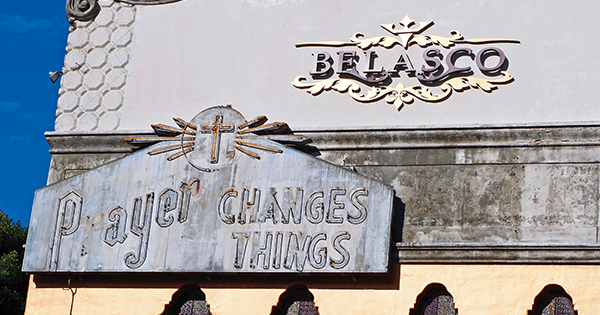
While reading several great 19th-century Russian novels lately, I have been struck by how much more people prayed then. In 19th-century English novels too. Meditation, yoga, tai chi, and other Eastern equivalents are perhaps a substitute for prayer if really practiced, not a fad. Heterodoxy is admirable, a parallel in theory to democracy, if it works. I’m dubious about that, though. But in the sense that I’m a pantheist, I don’t count. Like Emerson, I believe that heaven is here on earth, not in the afterlife, so to whom would you pray? Because I take life seriously, however—Emerson said that “life is an ecstasy”—I’ve always felt an affinity for those who pray to Mary or Jesus or whomever. How we live our days in creation is central. To think somebody is watching may give you a head start, like having loving parents or being blessed with work that you love. Loving God as I love the earth should be sufficient.
Yet I don’t encounter prayer as I did 50 years ago. Equations are different. Twitter takes up more time than postcards, my standby for decades. Praying involves preoccupation or a committed tic. Praying only when you need to doesn’t feel as effectual.
Belief is the bulwark of prayer, but how do you do it: believe, that is? Computer algorithms nudge the sandaled religions of Abraham for consumer attention, YouTube vs. the Virgin Birth. Prayer appeals to universals of irrationality such as empathy, mercy, and forgiveness. Prayer begs for a shortcut. Efficient justice or a suspended sentence. Probation, parole, or pardon. We ask for an E-ZPass, without the rigmarole of St. Peter’s Gate. We ask for loved ones to speak to us again after a feud, or for an end-around to cancer, intercession. Appealing proverbially to a higher court.
Praying simply for patience and strength may be a self-addressed envelope, not toward the deity but bordering on agnostic meditation. The “higher being,” then, is our “better self.” Don’t be defeated, vengeful, despairing, or lazy. See the bright side, be resilient and generous. Prayer as resolution, self-improvement. We live in an age of narcissism—our smartphones as essential as exercise machines and quirky diets—so I do see prayer of this outlier sort, the pull-yourself-together mode.
I would like to pray but never have. I’ve never asked a higher power for anything, in other words, or believed my predecessors were reachable for communication, or thanked some nebulous entity for the glories of life—I’ve merely reveled in them. When my daughter was born or my mother died, I didn’t kneel in private thanks or supplication. Yet because my transcendentalism is an offbeat religion, I wish I understood more of the mainstream stuff than I do. It’s healthy. A Sufi friend of mine, raised Catholic, then Anglican for a while, says he prays “to the Oneness” but, when challenged by a puzzling decision, falls back on the tried-and-true prescription of WWJD, “What would Jesus do?”
Acupuncture and other borrowings can attain religiosity too for some people. I’m not against experimentation or blended nostrums; I’m just worried by a culture fraying from global formulizing: sushi and hummus. Seven-league boots are fun, if you don’t blister or suffer vertigo and fall. I’ve been in Tibet, and Buddhism here is not the same. Will it buoy converts for long? Even WWJD has been summarily shelved by much of Europe’s Christendom now that refugees from elsewhere need help. This wasn’t World War II, this was selfishness, globalized. The pope rose to the crisis, and the Germans for a while, but numerous governments, representative of a nominally Christian populace, did not.
As an advocate for prayer, I’m a cheerleader not for monotheism but for civilization. I believe ethics can save our planet, whether the pope’s or the Dalai Lama’s. If things fall apart, the damage would be vast, almost on the scale of our mid-20th-century fear of thermonuclear extinction. In the meantime, we mimic what we see on TV, Instagram, and Facebook—and do we ever see a prayer?
Ad hoc, freelance, self-created, our appeals for a break rise willy-nilly toward the beneficence of heaven, if we are aware of deity and context. It gives a lift, like placing a bet, a morale boost. Prayer is extrasensory, as in the meek shall inherit the earth. One man, one vote. The pews in church aren’t sold anymore, as they sometimes used to be (or slaves sent to a balcony). It’s first come, first served, and no Latin necessary. For me, however, wordlessness may be the language of prayer—a sigh, a groan, or a smile encircling hope. The magnetism of mood, though not a higher power, might elicit a better self. Give strength. A weeping wall, sounding board, echo chamber.
Verbalize your prayer in order to evaluate it on occasion. Is it sensible or merely self-serving? The old joke could apply about a cheeky person granted any single wish, getting stranded in Siam or wherever, and no second one left over to bring true happiness. In other words, beware the Faustian prayer.

